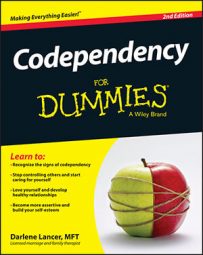You don’t have to confront someone who hurt you in person in order to heal. The person may be dead, too old, or infirm. Whether or not you decide to have a personal confrontation, follow the suggestions given here — come out of denial, strengthen your support system, self-esteem, boundaries, and assertiveness, and heal grief, anger, and shame. All are essential preparation for confrontation.
Confrontation should be for you — without unrealistic expectations that the person will magically change. Prepare to be attacked. You’re probably challenging denial that has been maintained for years, and if you’re focused on getting something from the other person, you may be disappointed. If you’re seeking revenge, you have unfinished anger work to do, and a confrontation may leave you feeling guilty and prevent or prolong reconciliation should you want that one day.
Before confronting a parent or abuser, ask yourself the following:
What are your motives?
What do you hope to accomplish?
What are your expectations?
Can you live with your worst imagined outcome?
Do you have a strong support system?
Are you secure in what happened to you in the face of denial?
Are you secure in knowing it wasn’t your fault?
What do you still need and want from your family?
Can you live without it or without contact with them?
Are you prepared to handle blame and angry reprisals?
What if you get no reaction?
If you decide to go ahead with a confrontation, prepare with a friend or therapist in advance by doing the following:
Write down and rehearse what you’re going to say aloud.
State what boundaries you need and anything else you want in any future relationship.
Plan to meet at a place where you can easily leave.
Ask to be heard without interruption and succinctly state the points you’ve rehearsed.
Don’t judge yourself if you decide to forego confrontation for any reason, such as you couldn’t handle your family’s reaction, are still dependent on them, or it would expose you to more abuse without any benefit.

